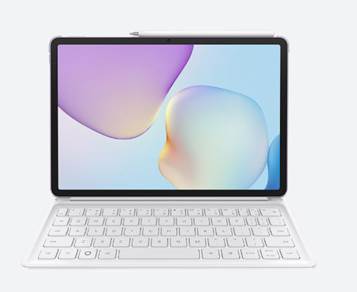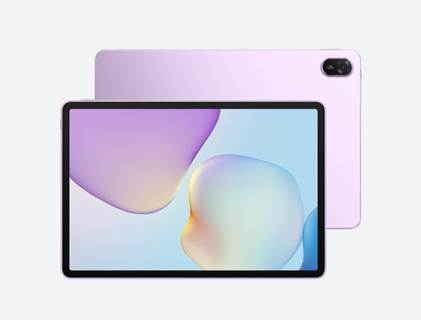Power
drives every moment of your tablet use, whether you are streaming a movie,
taking notes in class, or attending an online meeting. A tablet with a weak or
unreliable battery quickly becomes more of a burden than a helpful tool. Many
people don’t realize that how they treat their battery directly affects how
long it lasts and how smoothly their tablet performs over time. Simple daily
habits can make a big difference in ensuring your device stays reliable for
years. In this article, we will explore practical and science-backed ways to
maximize your tablet’s battery lifespan and performance.

Understand Your Battery Basics
Lithium-ion Battery Characteristics & Myths
Most
modern tablets, including Huawei devices, use lithium-ion batteries. These
batteries are designed to be lightweight, efficient, and rechargeable hundreds
of times. One common myth is that you must always drain the battery completely
before recharging, but this is outdated advice. In fact, fully discharging too
often can put extra stress on the cells and shorten lifespan. Another
misconception is that frequent short charges are harmful, but actually they are
perfectly safe with today’s technology.
How Battery Health Affects Performance
Battery
health is about more than just how long your device runs before needing a
charge. A well-maintained battery ensures smooth performance across tasks, from
opening apps quickly to sustaining high-quality video playback. If battery
health declines significantly, you may notice your tablet overheating, slowing
down, or shutting off unexpectedly. This is because the device has to work
harder to function with limited power reserves. For daily life, this means
interruptions in studying, working, or relaxing with entertainment. Taking care
of the battery keeps your tablet dependable, which is especially important when
you rely on it for productivity or learning.

Optimal Charging Practices
The 20-80% Rule for Daily Use
A
useful guideline for battery care is to keep your tablet’s charge between 20%
and 80% most of the time. Operating within this middle range reduces stress on
the cells and prevents premature wear. It may sound complicated, but in
practice it’s simple: plug in when your battery gets low and unplug once it’s
comfortably above half. Many users find this habit easy to build into their
routine, such as charging during a lunch break or while getting ready in the
morning. Over time, this approach can add months or even years to your
battery’s healthy lifespan, making your device a better long-term investment.
Overnight Charging: Yes or No?
A
common question is whether it’s safe to leave a tablet plugged in overnight.
While modern tablets have built-in protections against overcharging, keeping
the device at 100% for extended periods may still put unnecessary strain on the
battery. If you regularly charge overnight, try to use a smart plug with a
timer or simply unplug the device in the morning to avoid staying at full
charge for too long. Occasional overnight charging is not harmful, but making
it a daily habit can gradually impact battery health. Balancing convenience
with care helps you get the best of both worlds.
Temperature Management
Temperature
is one of the biggest factors in battery preservation. Batteries are most
comfortable at normal room temperatures, and exposure to heat is especially
damaging. Leaving your tablet in direct sunlight, in a hot car, or on top of a
heating vent can cause the battery to age much faster. Cold temperatures are
less harmful but can temporarily reduce performance until the device warms up
again. For daily life, this means being mindful of where you set down your
tablet. Simple steps, like storing it in a bag indoors instead of in a car
trunk, can protect your battery more than you might expect.
Usage Habits for Battery Preservation
Background App Management
Many
people leave multiple apps open without realizing they are constantly using
power. Social media, messaging, and even background syncing can quietly drain
the battery throughout the day. Regularly checking which apps are running and
closing those you don’t need can prevent unnecessary power loss. Tablets today
make it easy to monitor battery usage in settings, showing which apps consume
the most energy.
Brightness & Settings Optimization
Your
screen is often the biggest consumer of power on a tablet. Keeping brightness
unnecessarily high drains the battery faster and adds heat. Adjusting
brightness to match your environment, or turning on auto-brightness, can save
hours of power. Other small settings like reducing screen timeout, disabling
location services when not needed, and turning off Bluetooth or Wi-Fi in idle
periods also help. These changes may seem minor, but together they form a big
difference in how efficiently your tablet uses its energy. For everyday users,
this means fewer interruptions and a smoother, longer-lasting experience.
Long-Term Storage Guidelines
Proper Storage Charge Level
Sometimes
you may not use your tablet for weeks or months, such as during travel or when
upgrading to a new device temporarily. In these cases, how you store the tablet
matters for battery health. Storing it fully charged or completely empty can
stress the battery cells. Instead, aim to leave it around 50% charged before
putting it away. This level is considered the safest balance, preventing both
deep discharge and high-voltage strain during long rests.
Maintenance During Non-Use Periods
If
you plan not to use your tablet for a long time, it’s helpful to check on it
every few weeks. Recharging to around 50% when it drops lower can maintain the
battery’s long-term health. Avoid storing the device in very hot or humid
environments, such as attics or basements, since these conditions accelerate
battery wear. Treating your tablet like other sensitive electronics ensures
it’s ready to work again when you need it, without frustrating surprises like a
battery that won’t hold charge.
Conclusion
Good
battery care comes from simple daily habits, not complex rules. Small
steps—like mindful charging, storage, and temperature control—can significantly
extend your tablet’s lifespan. These practices help maintain performance and
delay replacement needs. If you value both battery life and convenience, the huawei 11.5 matepad offers a 10,100mAh battery, 40W SuperCharge, and up to 14
hours of video playback—making it a great companion for study, work, and
leisure that’s built to last. With the right approach, your tablet can stay a
reliable companion in work, study, and leisure for many years.
